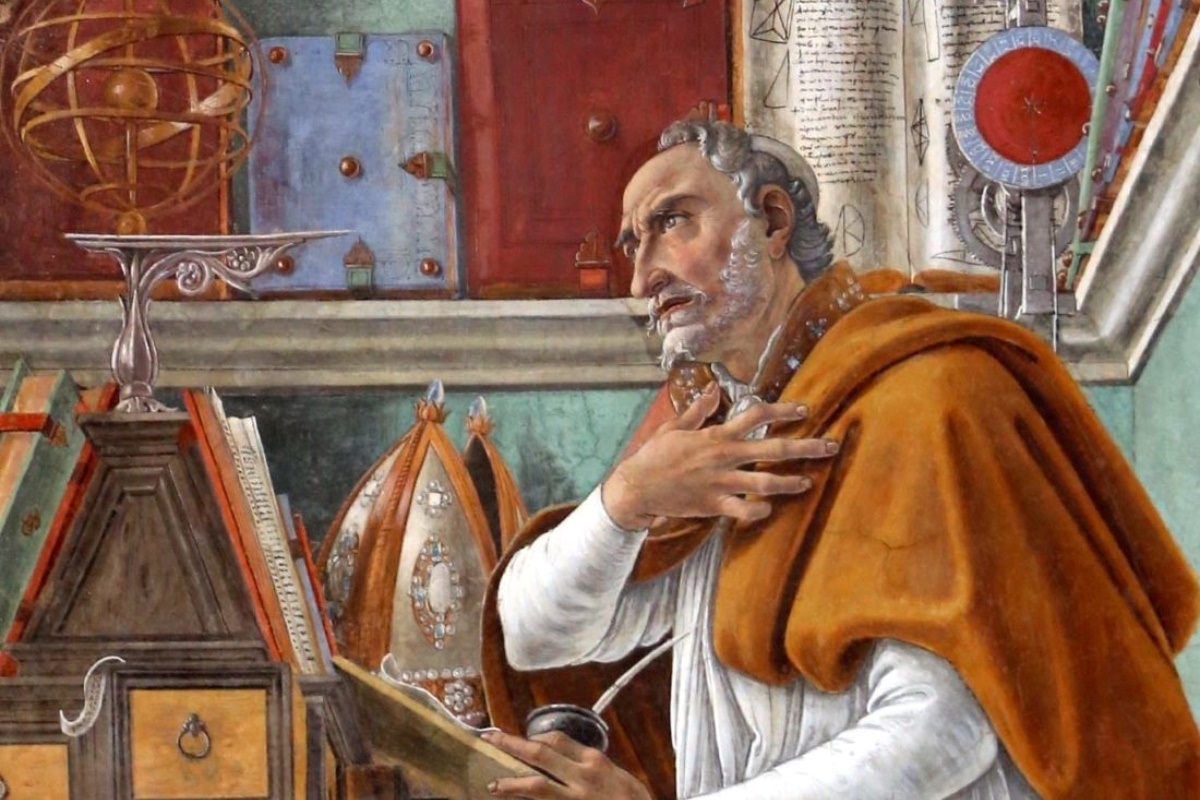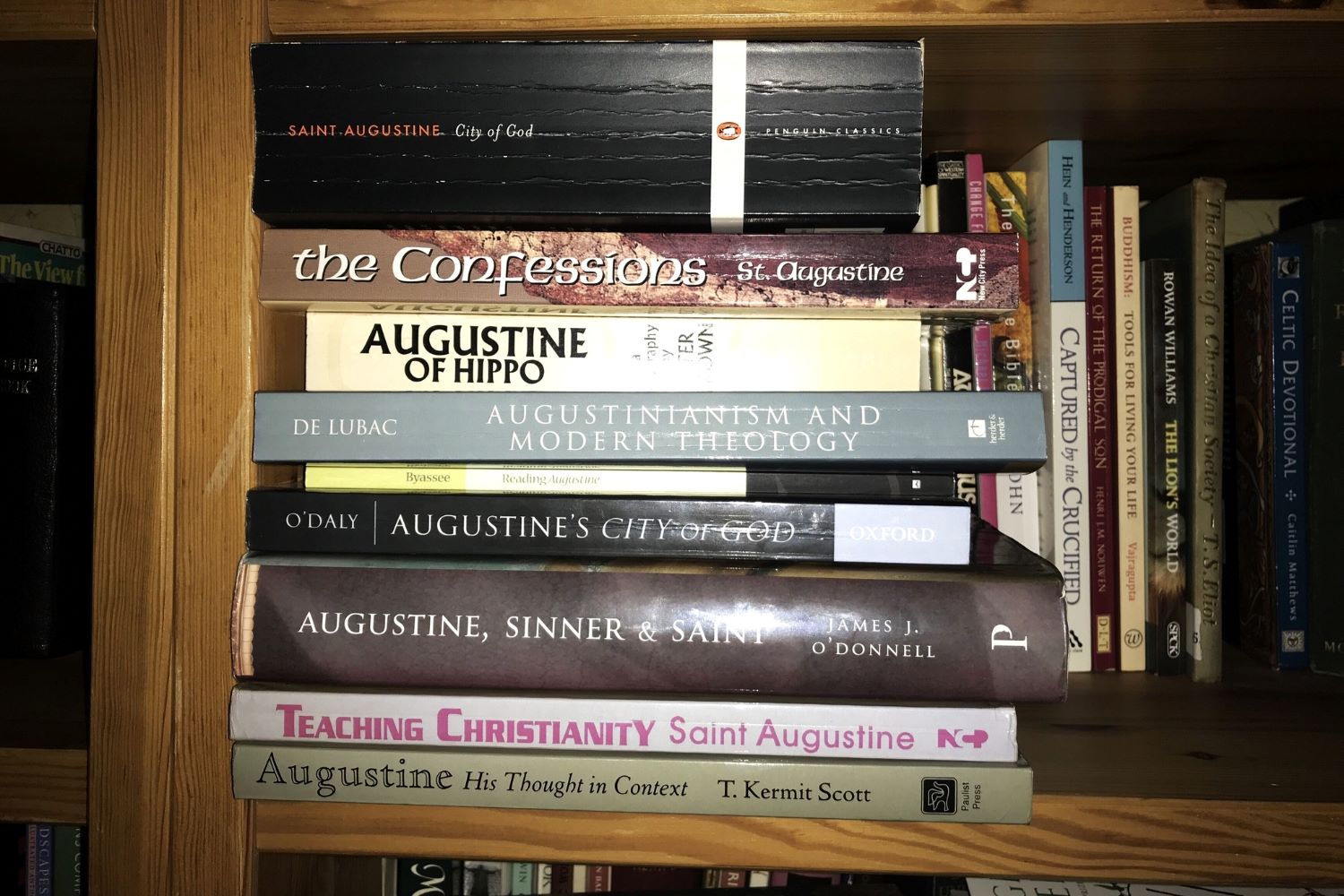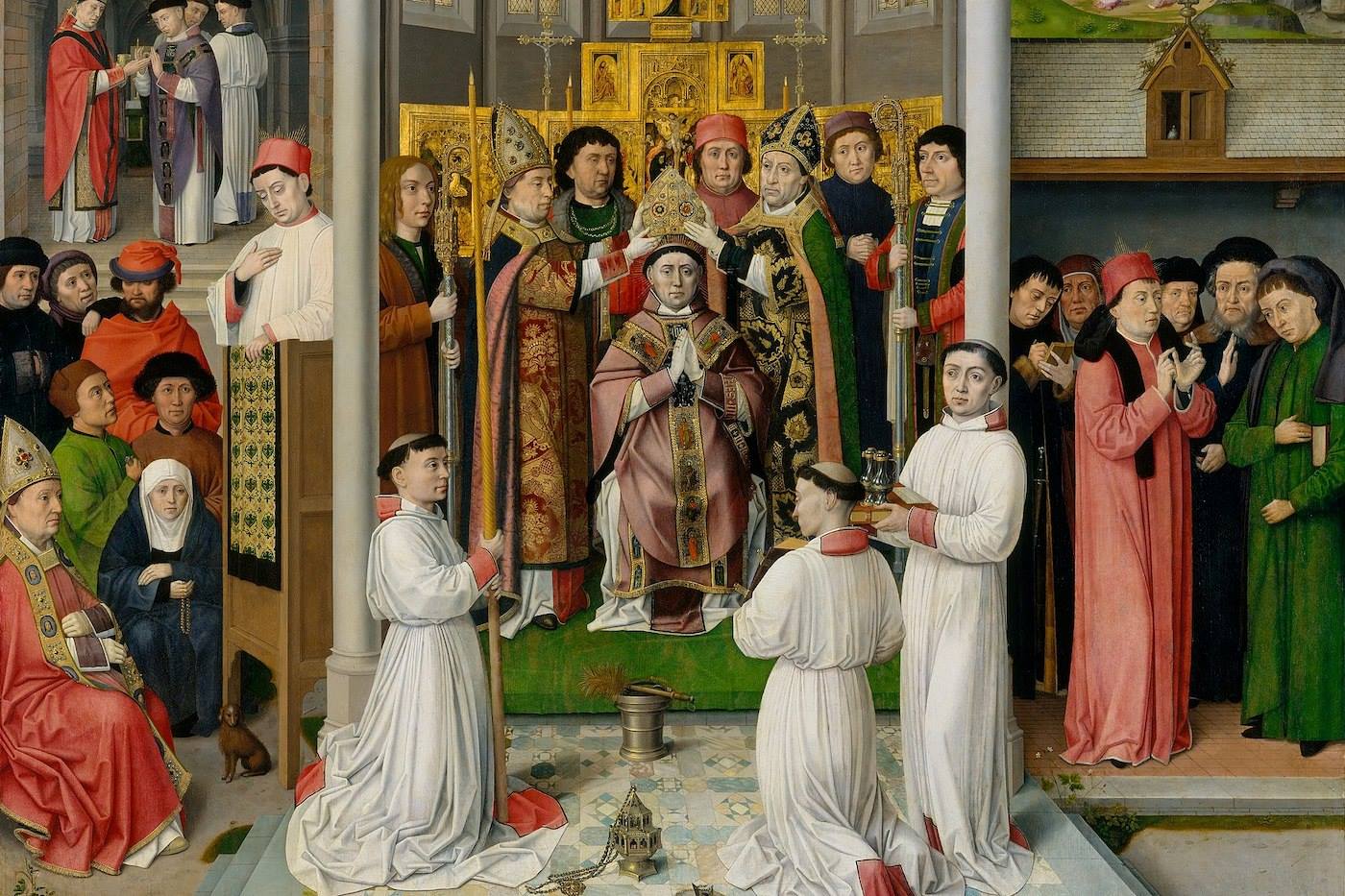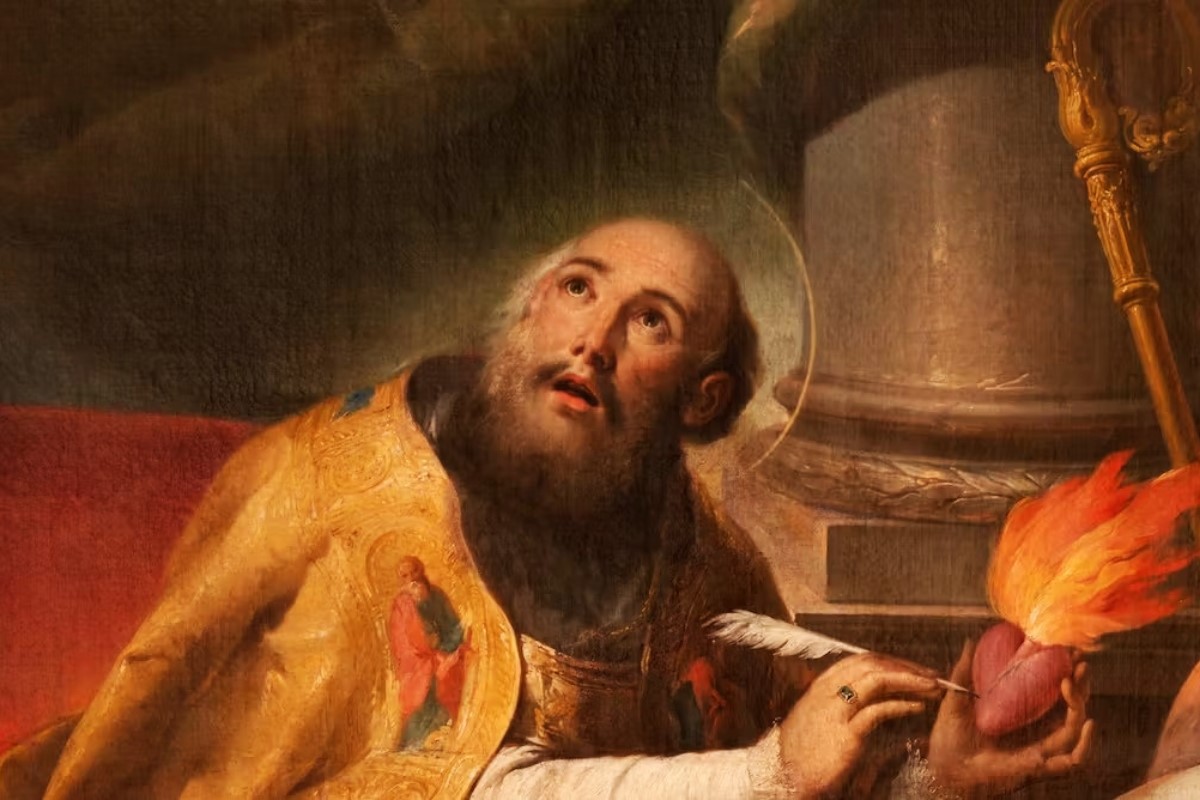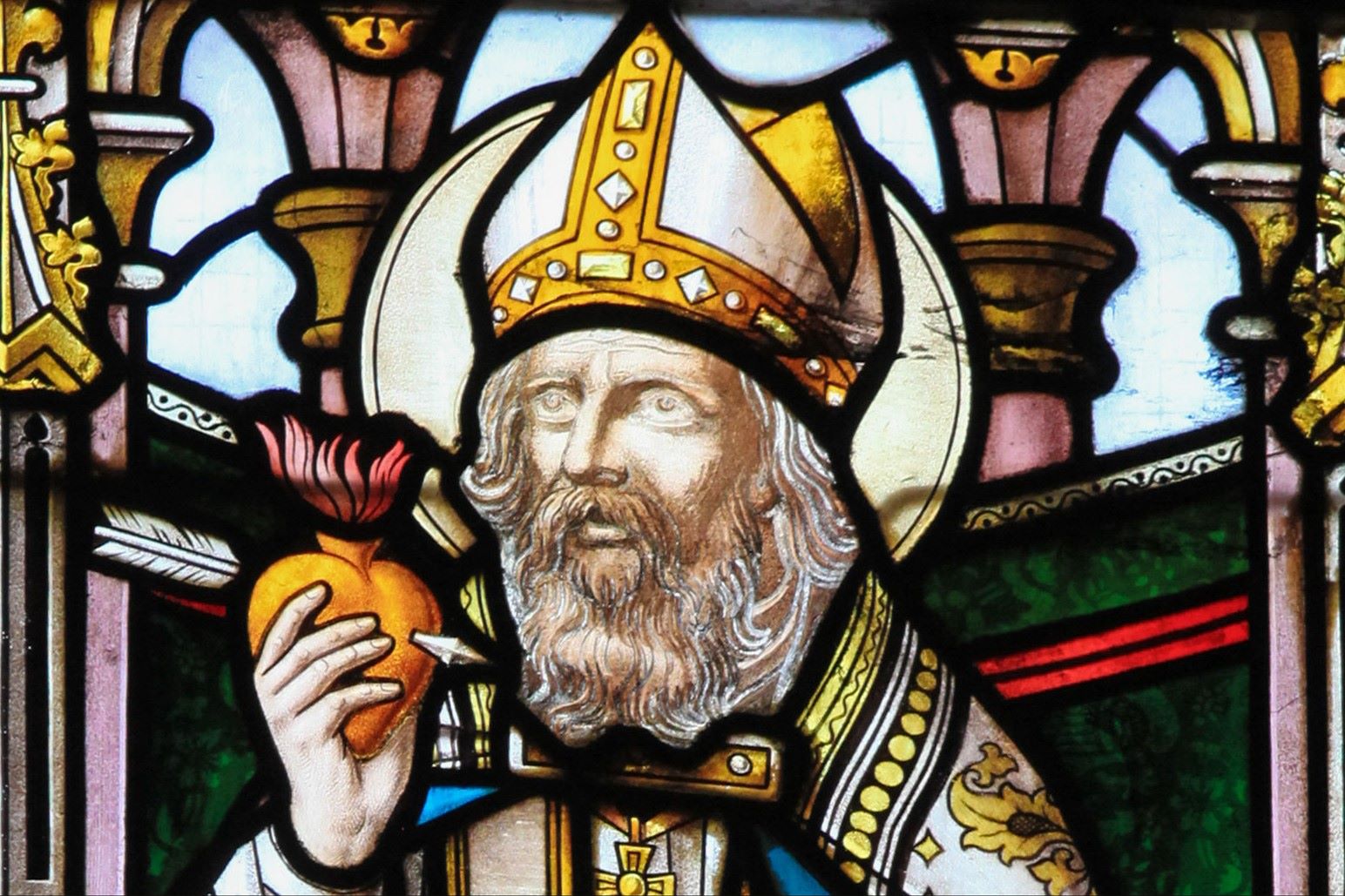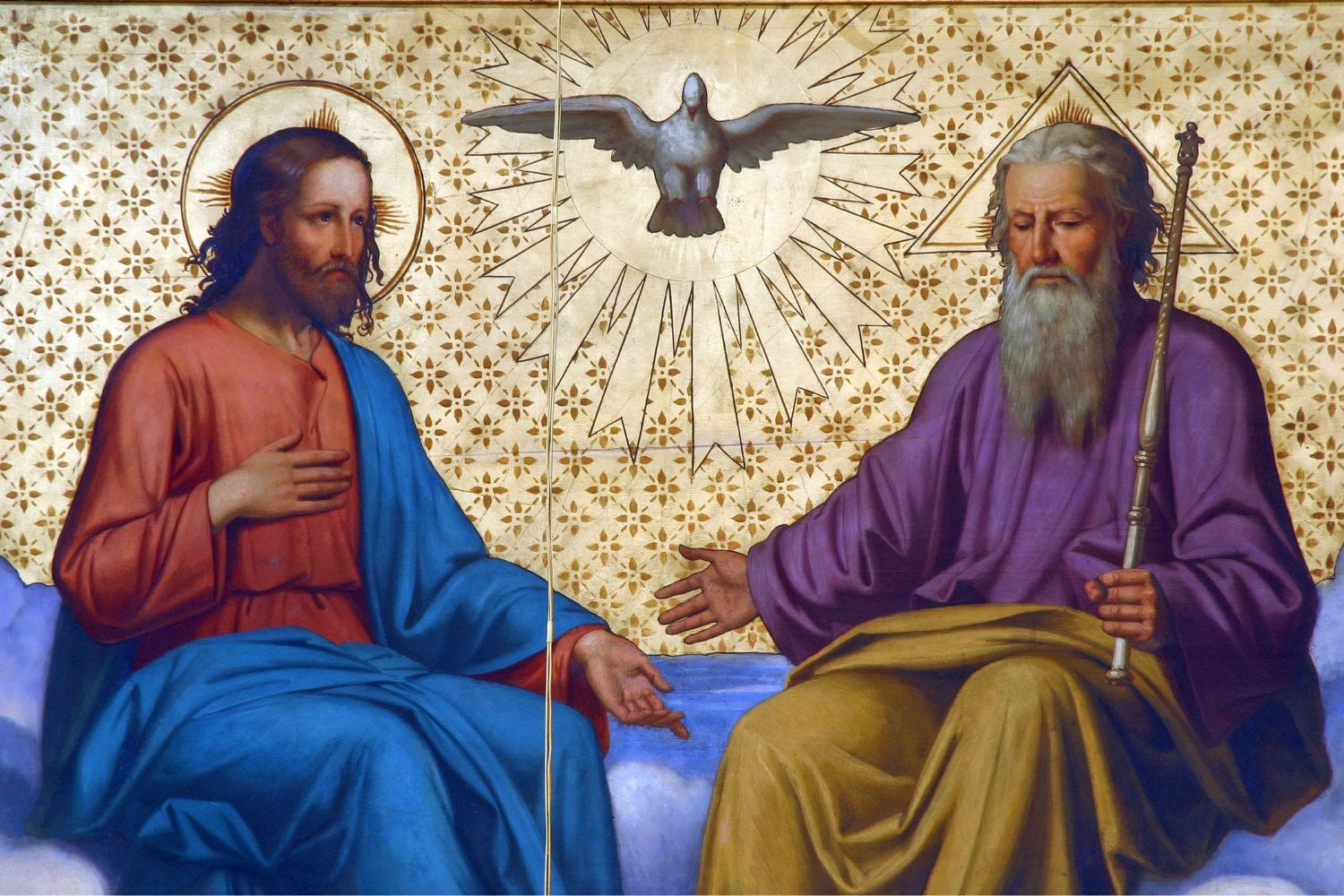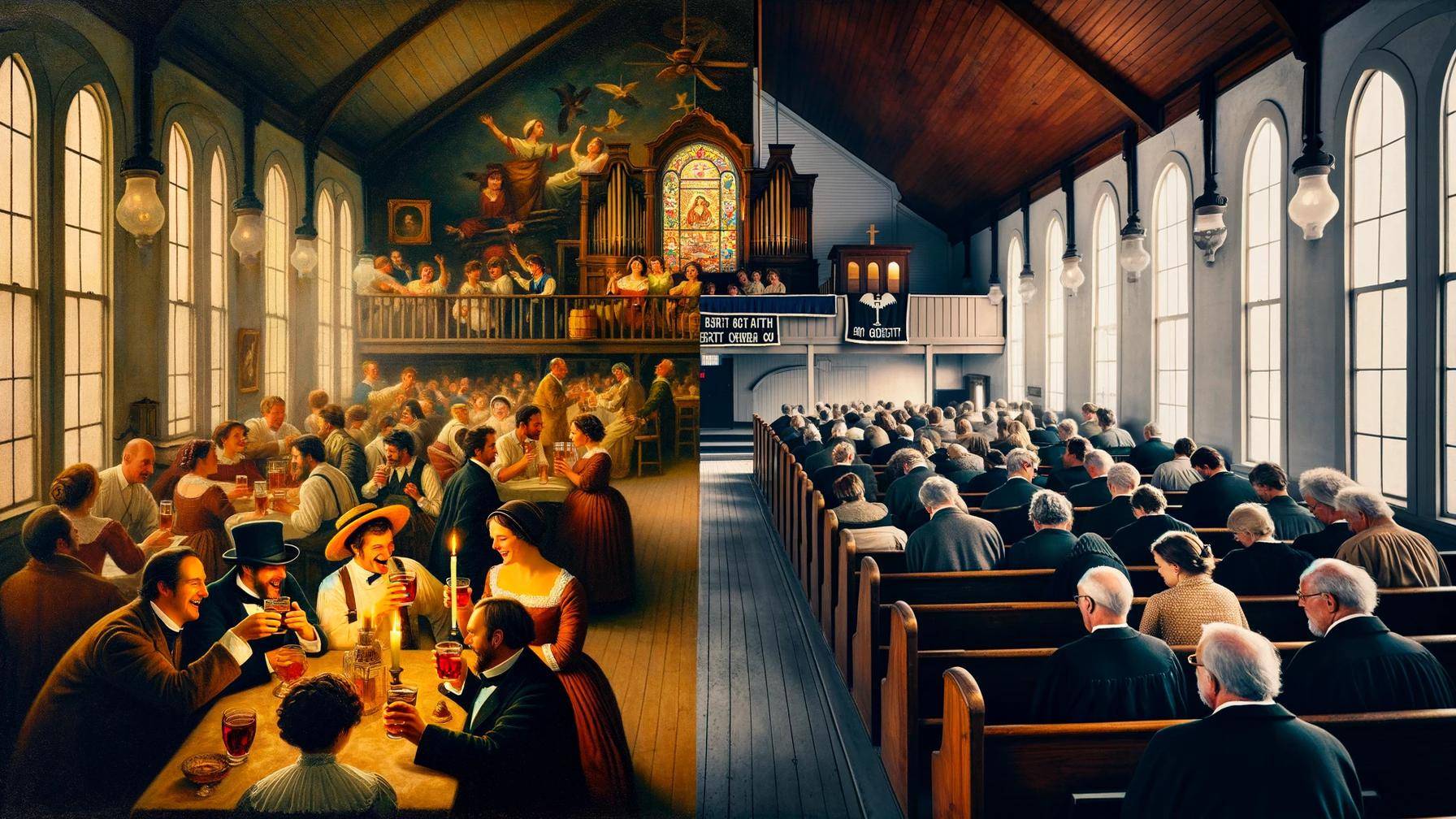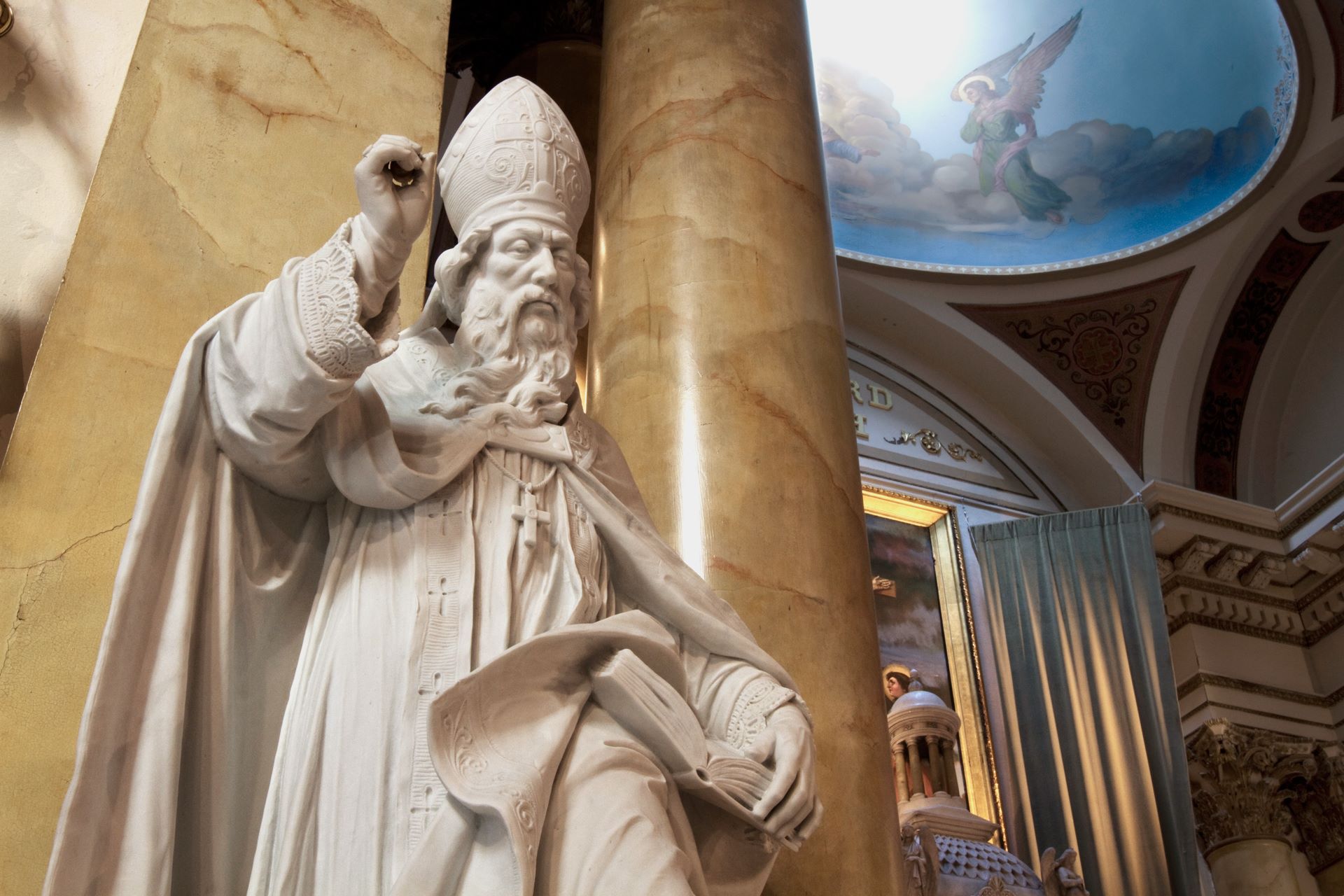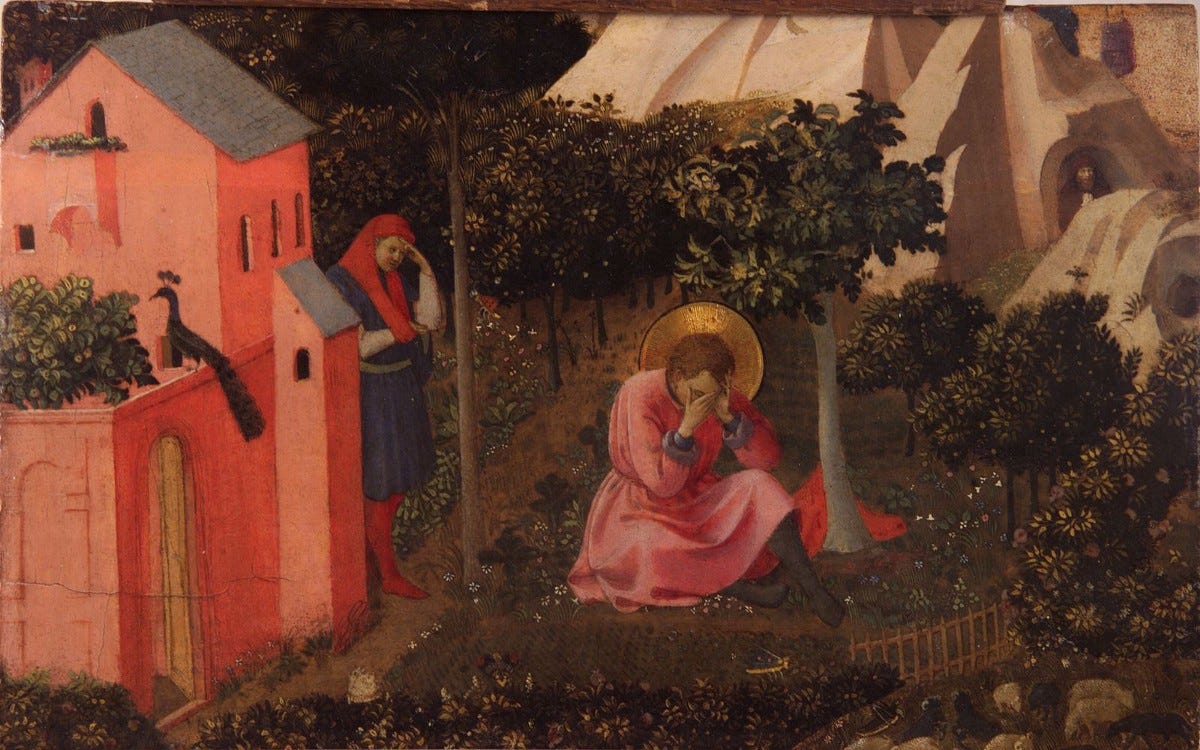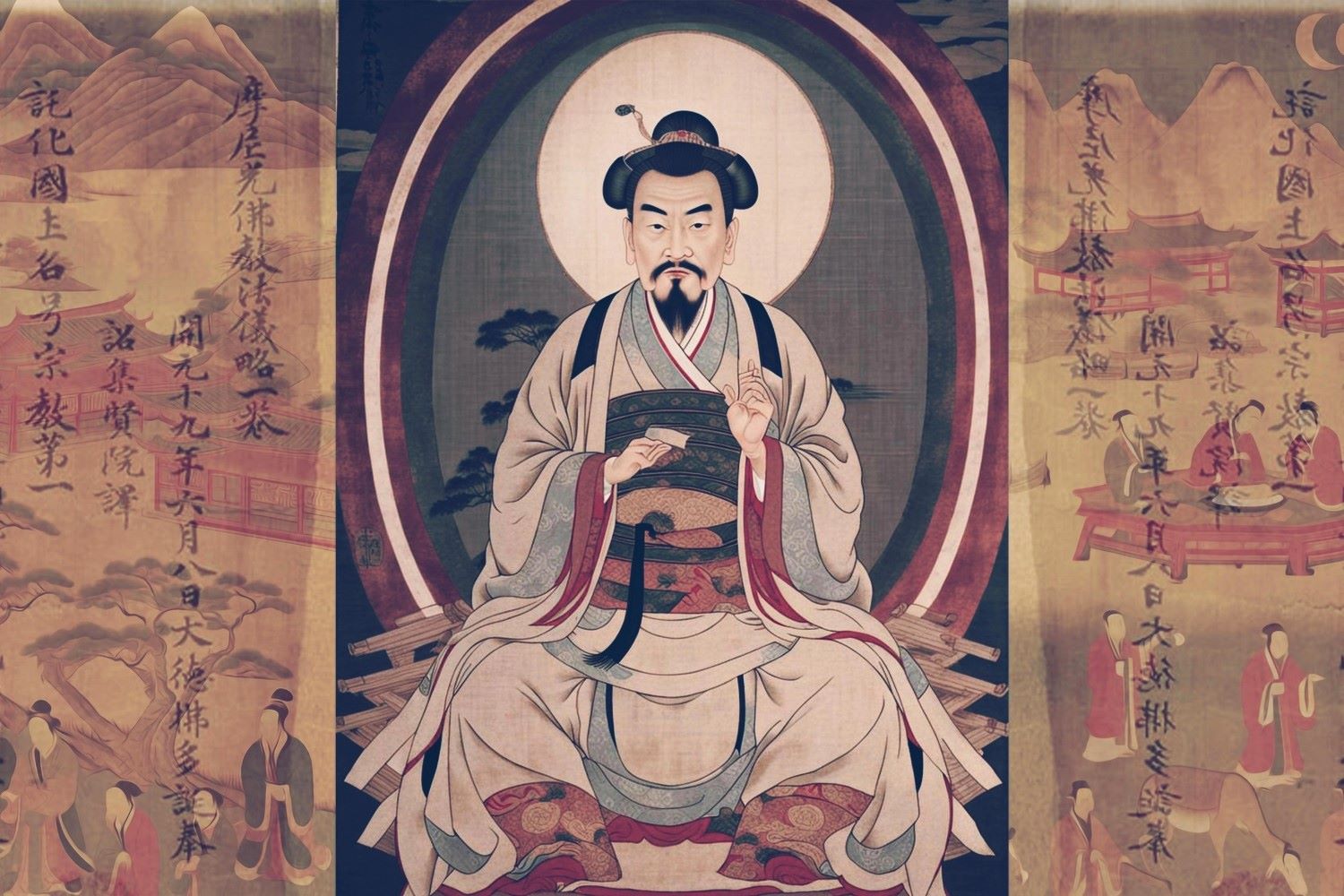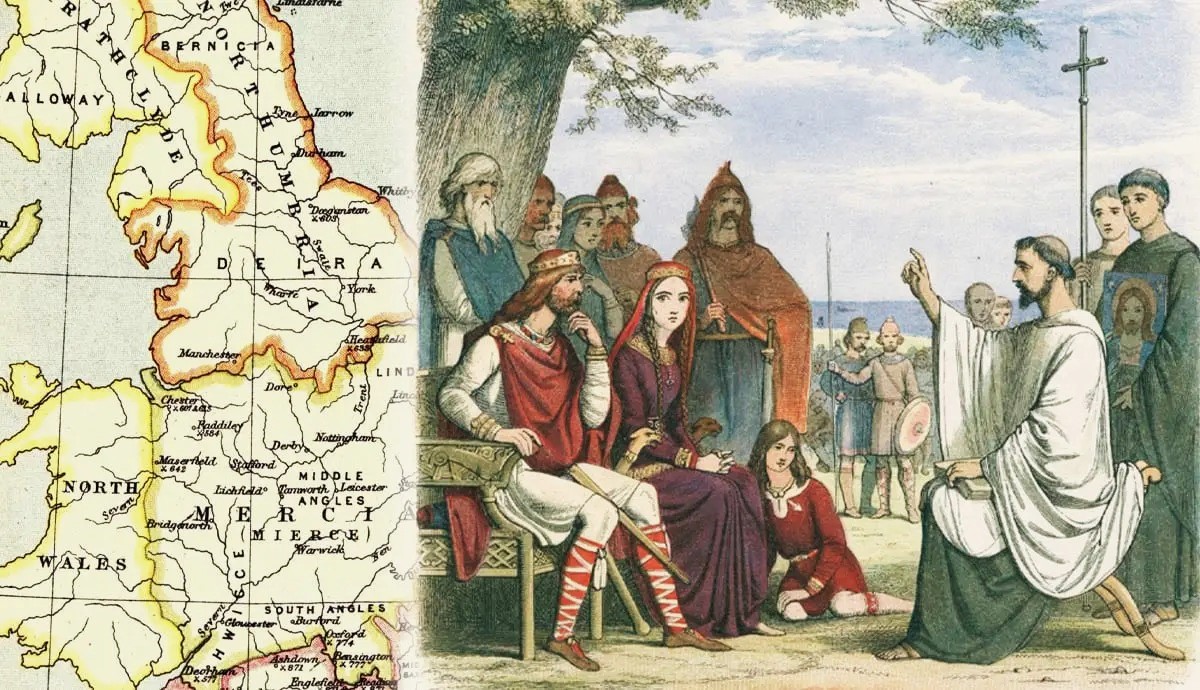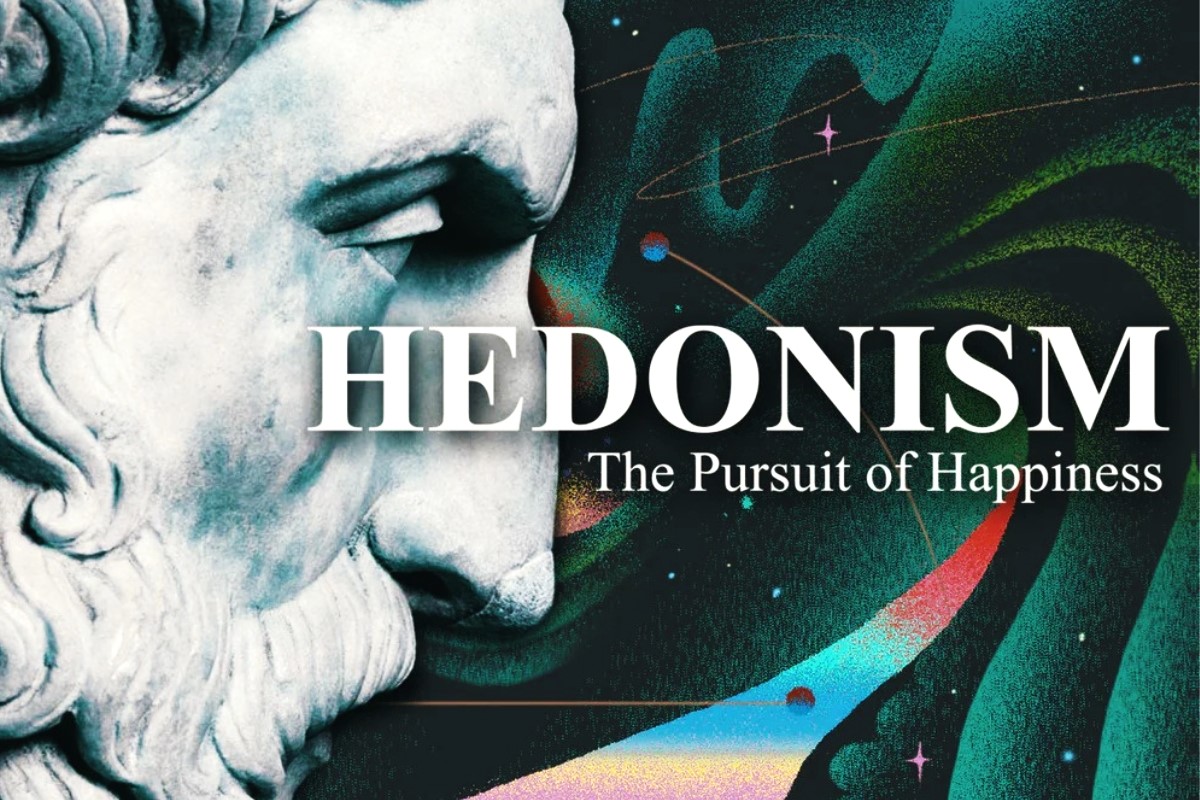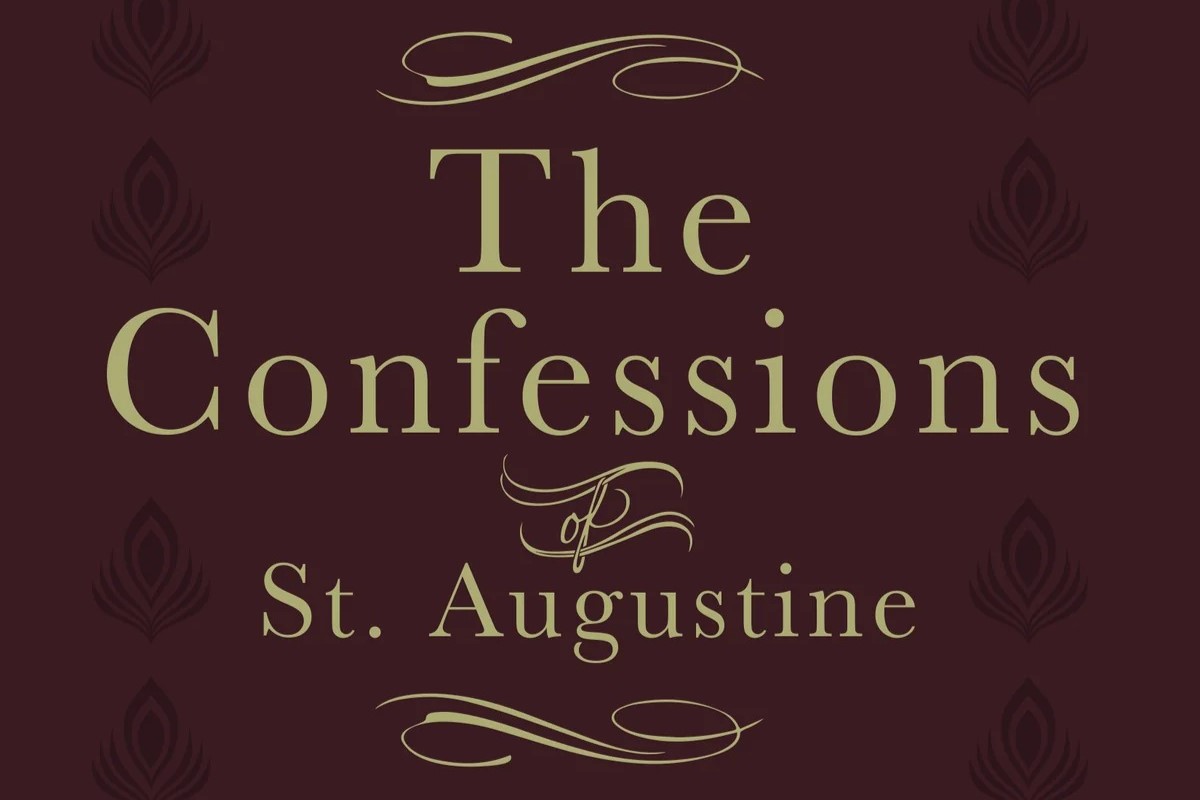Home>Theology and Spirituality>What Two Heresies Did Augustine Fight Against
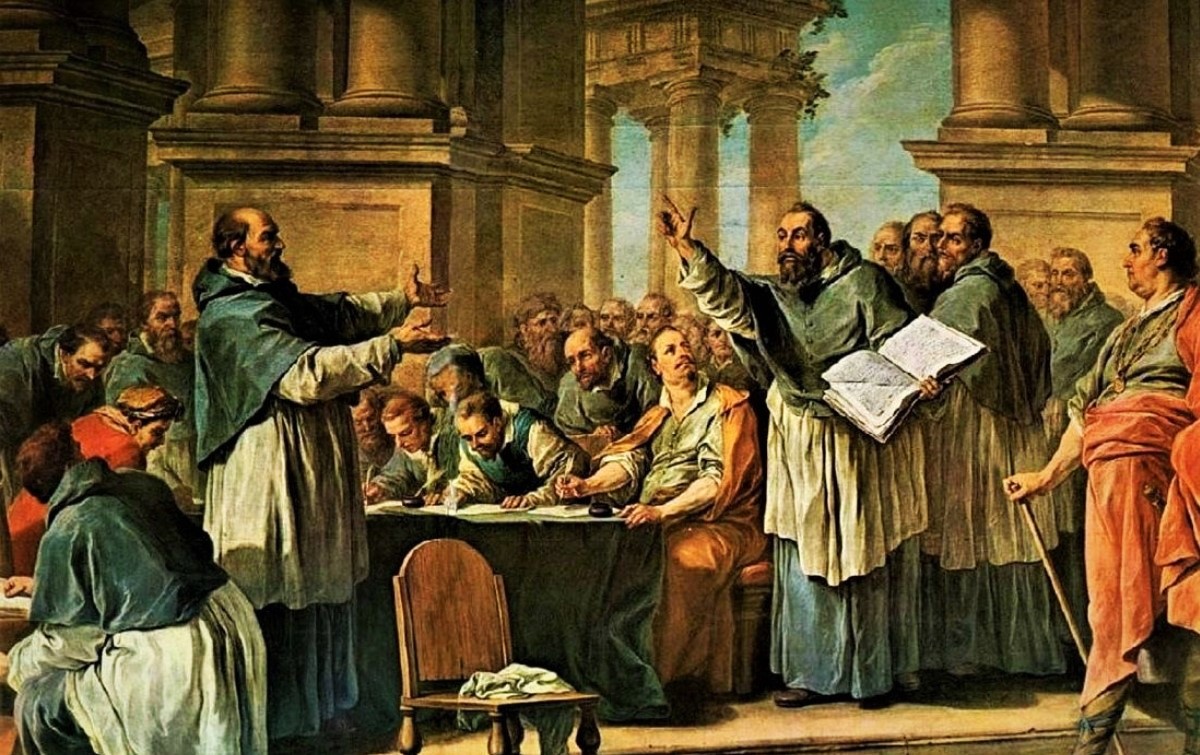

Theology and Spirituality
What Two Heresies Did Augustine Fight Against
Published: February 10, 2024
Peter Smith, Editorial Director at Christian.net, combines deep insights into faith, politics, and culture to lead content creation that resonates widely. Awarded for his contributions to religious discourse, he previously headed a major organization for religious communicators, enhancing dialogue on faith's societal impacts.
Discover how Augustine combated the heresies of Donatism and Pelagianism in his theological and spiritual writings. Explore his influential teachings and impact.
(Many of the links in this article redirect to a specific reviewed product. Your purchase of these products through affiliate links helps to generate commission for Christian.net, at no extra cost. Learn more)
Table of Contents
Introduction
In the history of Christianity, the theological landscape has been marked by various doctrinal controversies and debates. These disputes often revolve around the interpretation of key theological concepts, leading to the emergence of divergent beliefs and practices. One of the most influential figures in the early Christian church who grappled with such theological challenges was Saint Augustine of Hippo.
Augustine, a towering figure in Christian theology, lived during a time of significant doctrinal upheaval. He was deeply engaged in combating heresies that threatened the unity and orthodoxy of the Christian faith. Two prominent heresies that Augustine vigorously opposed were Donatism and Pelagianism. These theological movements posed significant challenges to the established teachings of the church, prompting Augustine to respond with intellectual rigor and theological insight.
As we delve into the intricacies of these heresies and Augustine's responses, it becomes evident that his contributions not only shaped the theological landscape of his era but also continue to influence Christian thought and practice to this day. Augustine's profound engagement with these heresies offers valuable insights into the complexities of theological discourse and the enduring relevance of his theological legacy.
The Heresy of Donatism
The Heresy of Donatism originated in the 4th century and was centered in the Roman province of Africa. At its core, Donatism was a schismatic movement within the early Christian church that emerged as a response to the issue of how to deal with clergy who had renounced their faith during the Diocletianic Persecution. The Donatists, led by Donatus Magnus, vehemently argued that clergy who had lapsed under persecution could not validly administer the sacraments. This stance directly challenged the traditional understanding of the sacraments and the authority of the church.
Central to the Donatist belief was the concept of ecclesial purity. They contended that the effectiveness of the sacraments hinged on the moral character of the clergy performing them. Consequently, they held that clergy who had succumbed to persecution were unfit to hold their ecclesiastical positions and that their ministrations, including the administration of sacraments, were invalid. This position stood in stark contrast to the prevailing view within the broader Christian community, which maintained that the efficacy of the sacraments was not contingent upon the moral standing of the clergy.
The Donatist schism posed a significant challenge to the unity of the church, as it led to the establishment of parallel Donatist congregations that operated independently of the Catholic Church. This division not only created a rift within the Christian community but also raised fundamental questions about the nature of the church and the validity of its sacramental practices.
Augustine, recognizing the grave implications of the Donatist schism, vigorously opposed their beliefs and practices. He argued that the validity of the sacraments was not dependent on the moral purity of the clergy but on the authority of Christ. Augustine contended that the sacraments were efficacious by virtue of Christ's institution rather than the personal righteousness of the minister. His theological response to the Donatist controversy laid the groundwork for a more robust understanding of the church's sacramental theology and its unity.
In confronting the Donatist heresy, Augustine articulated a vision of the church as a communion of the saints, emphasizing its unity and catholicity. His theological insights and polemical writings played a pivotal role in addressing the challenges posed by the Donatist schism, leaving a lasting impact on the development of Christian ecclesiology and sacramental theology.
The Heresy of Pelagianism
The Heresy of Pelagianism, named after the British monk Pelagius, emerged in the 5th century and posed a significant theological challenge to the prevailing understanding of human nature, sin, and grace within Christian doctrine. At the heart of Pelagianism was the assertion of human autonomy and the denial of original sin. Pelagius contended that human beings possessed the inherent ability to live a morally upright life and achieve salvation through their own efforts, without necessarily relying on divine grace. This starkly contrasted with the traditional Christian belief in the doctrine of original sin, which maintains that humanity inherited a sinful nature as a result of Adam's transgression in the Garden of Eden.
Pelagius emphasized the importance of human free will and moral agency, arguing that individuals had the capacity to lead virtuous lives and attain salvation through their own choices and actions. He rejected the notion of inherited sin and the necessity of divine grace in the process of redemption. This theological stance challenged the foundational teachings of the Christian faith, particularly regarding the role of grace in the salvation of humanity.
In response to the Pelagian heresy, Augustine articulated a robust defense of the doctrine of original sin and the indispensable role of divine grace in the salvation of humanity. Augustine's theological framework underscored the pervasive influence of sin on human nature and the consequent need for unmerited divine grace to effectuate redemption. He emphasized the radical corruption of human nature due to original sin, highlighting the inherent inability of individuals to achieve salvation through their own moral efforts.
Augustine's profound theological insights and polemical writings served as a bulwark against the spread of Pelagianism, offering a compelling theological framework that affirmed the centrality of divine grace in the process of salvation. His articulation of the doctrine of original sin and the sovereignty of divine grace significantly influenced the trajectory of Christian theology, shaping subsequent discussions on soteriology and the nature of human depravity.
The Pelagian controversy, marked by vigorous theological debates and ecclesiastical councils, underscored the enduring significance of Augustine's theological contributions in safeguarding the orthodox understanding of human nature, sin, and grace within the Christian tradition. Augustine's resolute defense of the doctrine of original sin and divine grace continues to resonate within theological discourse, serving as a foundational pillar of Christian soteriology and anthropology.
Augustine's Response and Influence
Augustine's response to the heresies of Donatism and Pelagianism was characterized by intellectual rigor, theological acumen, and a steadfast commitment to defending orthodox Christian doctrine. His influential writings and polemical engagements not only addressed the immediate theological challenges posed by these heresies but also left a lasting imprint on the trajectory of Christian theology and ecclesiastical thought.
In his response to the Donatist controversy, Augustine articulated a robust theological framework that emphasized the unity and catholicity of the church. He vigorously refuted the Donatist insistence on ecclesial purity as a prerequisite for the validity of the sacraments, asserting instead the primacy of Christ's authority in conferring efficacy upon the sacraments. Augustine's theological response underscored the foundational role of Christ in the administration of the sacraments, transcending the moral failings of the clergy. This theological perspective not only addressed the immediate schism caused by the Donatist movement but also laid the groundwork for a more comprehensive understanding of the church's sacramental theology and its unity.
Furthermore, Augustine's engagement with the Pelagian heresy yielded profound theological insights that continue to reverberate within Christian soteriology and anthropology. In response to Pelagius' denial of original sin and the necessity of divine grace, Augustine expounded a robust defense of the doctrine of original sin and the indispensable role of divine grace in the salvation of humanity. His theological framework underscored the pervasive influence of sin on human nature and the consequent need for unmerited divine grace to effectuate redemption. Augustine's resolute defense of the doctrine of original sin and divine grace not only countered the theological challenges posed by Pelagianism but also significantly influenced the trajectory of Christian theology, shaping subsequent discussions on soteriology and the nature of human depravity.
The enduring influence of Augustine's response to these heresies is evident in the lasting impact of his theological contributions on the development of Christian doctrine and ecclesiastical thought. His writings continue to serve as foundational pillars of orthodox Christian theology, informing theological discourse on the nature of the church, the sacraments, human nature, and the sovereignty of divine grace. Augustine's profound theological insights and polemical engagements stand as a testament to his enduring influence on the theological landscape of Christianity, demonstrating the enduring relevance of his contributions to the ongoing conversation within the Christian tradition.
